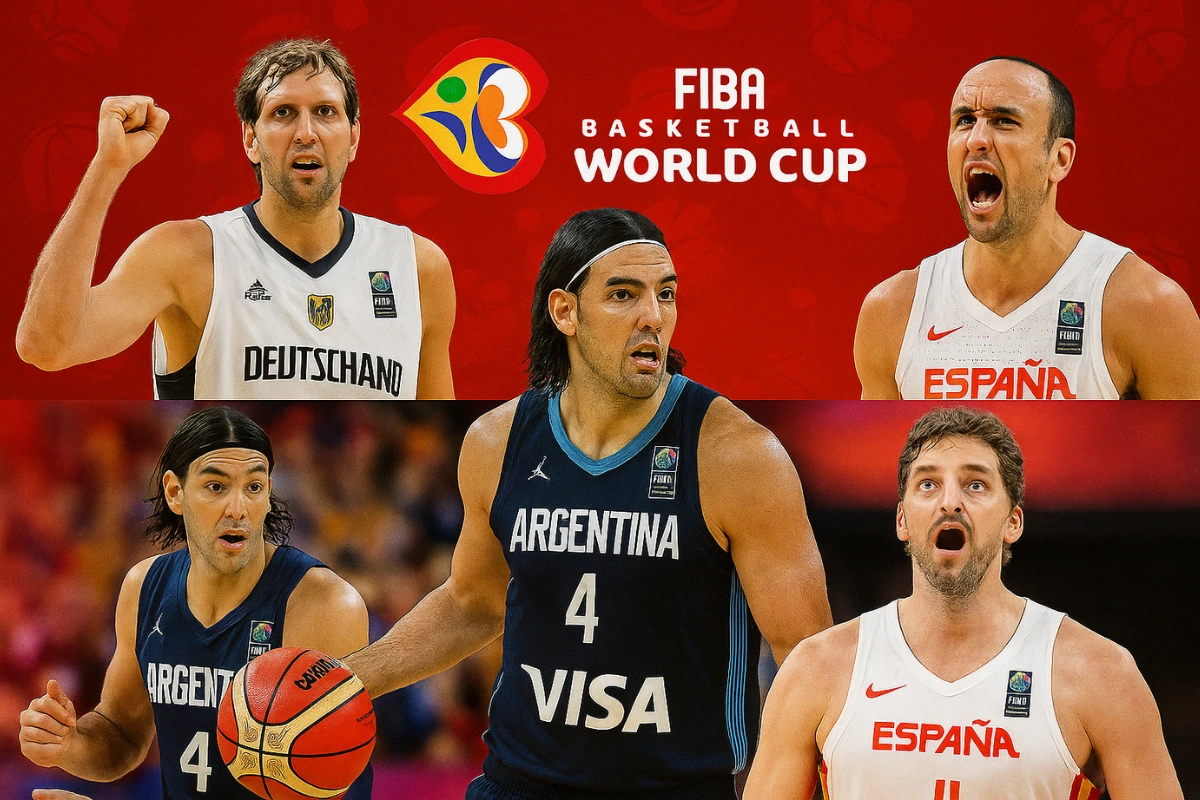Introduction to the FIBA Basketball World Cup
Basketball is more than slam dunks and buzzer-beaters—it’s a global passion. And if there’s one tournament that unites nations under the hoop, it’s the FIBA Basketball World Cup. Consider it the high-flying cousin of the FIFA World Cup, but with the focus on the court rather than the field.
What is the FIBA Basketball World Cup?
Brief History and Origin
The FIBA World Cup had humble beginnings. Thanks to the International Basketball Federation (FIBA), it all began in Argentina in 1950. The idea was simple: bring together the best basketball nations to compete on a global stage.

Evolution Over the Years
Originally held every four years, the tournament has seen rule changes, team expansions, and a rise in popularity. What started with just 10 teams now features 32 powerhouses from around the globe, including new basketball hotbeds like the Philippines and Nigeria.
Structure of the Tournament
Number of Teams and Qualification
To qualify for the World Cup, countries participate in rigorous regional qualifiers, organised across Africa, the Americas, Asia, and Europe. Only the best make it to the final tournament.
Group and Knockout Phases
Once qualified, teams are divided into 8 groups of 4, with the top teams advancing to the knockout rounds. From there, it’s win or go home, culminating in a dramatic final.
Historical Overview
Past Champions
Basketball dynasties have emerged throughout FIBA’s history.
- The USA and Yugoslavia top the charts with multiple wins.
- Spain has also made its mark, especially with their recent victories in 2006 and 2019.
Dominant Countries
- USA: Known for star-studded lineups.
- Yugoslavia (and its successors): Technical brilliance.
- Spain and Argentina: Consistent and clutch.
Surprising Victories
Remember 2006, when Spain won without Pau Gasol in the final? Or 2002, when Argentina handed the U.S. their first-ever FIBA loss with NBA players? Legendary stuff.
Memorable Moments in FIBA History
Iconic Performances
- Dirk Nowitzki’s 2002 campaign with Germany.
- Luis Scola’s ageless brilliance in 2019.
Upsets and Underdog Stories
Who doesn’t love an underdog? Teams like Slovenia, Serbia, and Canada have turned heads with their fearless performances.
FIBA vs. Other International Tournaments
FIBA vs. Olympic Basketball
While the Olympics are flashy and historic, the FIBA World Cup is basketball’s purest global competition. Why? Because it features more teams, longer gameplay, and occurs on its independent timeline.
FIBA vs. NBA
FIBA and the NBA are two sides of the same basketball coin:
- Rules: FIBA has a shorter three-point line and different goaltending rules.
- Style: FIBA favours team play, less isolation, and a greater emphasis on fundamentals.
- Vibe: NBA is glitzy; FIBA is gritty.
Key Players and Legends of the FIBA World Cup
International Superstars
You can’t talk about FIBA without these names:
- Dirk Nowitzki—Put Germany on the map.
- Manu Ginóbili – Sparked Argentina’s golden generation.
- Pau Gasol—Spain’s most iconic baller.
Rising Stars to Watch
- Luka Dončić (Slovenia) – Already a legend in the making.
- Shai Gilgeous-Alexander (Canada) – Electrifying.
- Josh Giddey (Australia) – Young and fearless.
FIBA 2023 Recap and Highlights
Host Countries and Venues
FIBA 2023 was co-hosted by the Philippines, Japan, and Indonesia—the first time in history the tournament was split across three nations.
Standout Teams and Players
- Germany shocked the world by winning their first-ever title.
- Dennis Schröder was on fire and named MVP.
- The USA fell short again—proving the world has truly caught up.
Economic and Cultural Impact
Impact on Host Nations
Hosting a FIBA tournament isn’t just about basketball. It attracts tourism, boosts local pride, and fosters long-lasting infrastructure improvements.
Global Popularity of Basketball
Basketball is no longer an American export—it’s a global obsession. Thanks to FIBA, kids in Lithuania, China, and Nigeria are dreaming of hardwood glory.
How to Watch the FIBA World Cup
Streaming Options
Missed the game? Don’t worry:
- Courtside 1891 – FIBA’s official streaming service.
- Live coverage is frequently available on YouTube TV, DAZN, and ESPN.
Official Partners and Broadcasters
From Nike to TCL, FIBA has some big-name sponsors making the experience top-tier. Local channels also carry games in various languages worldwide.
Road to FIBA 2027
Future Hosts
Get hyped! The 2027 FIBA World Cup will be hosted by Qatar—a nation renowned for its ambitious sporting events and state-of-the-art facilities.
Predictions and Expectations
Expect the USA to come back hungry, Canada to be a serious contender, and Europe’s new generation to continue shining. FIBA 2027 might just be the most competitive edition yet.
Conclusion
The FIBA Basketball World Cup isn’t just another tournament—it’s the heart and soul of international basketball. From emotional wins to unforgettable moments, it’s a celebration of everything that makes the sport great. Whether you’re a hardcore hoops fan or just discovering the magic of basketball, FIBA gives you a front-row seat to greatness. So put on your jersey, support your nation, and get ready to watch the games!
FAQs
Q1. What distinguishes the NBA from FIBA?
FIBA is the international basketball federation, while the NBA is a professional league in North America. Their global scope, playing style, and rules are different.
Q2. Who has won the most FIBA World Cups?
The United States and the former Yugoslavia are tied with the most titles, each having won the tournament five times.
Q3. How often is the FIBA World Cup held?
The tournament is held every four years, just like the FIFA World Cup.
Q4. Can NBA players participate in FIBA?
Yes! Many NBA stars represent their national teams in FIBA tournaments, although this depends on their availability and team commitments.
Q5. Where is the next FIBA World Cup going to be held?
The 2027 FIBA Basketball World Cup will take place in Qatar.
